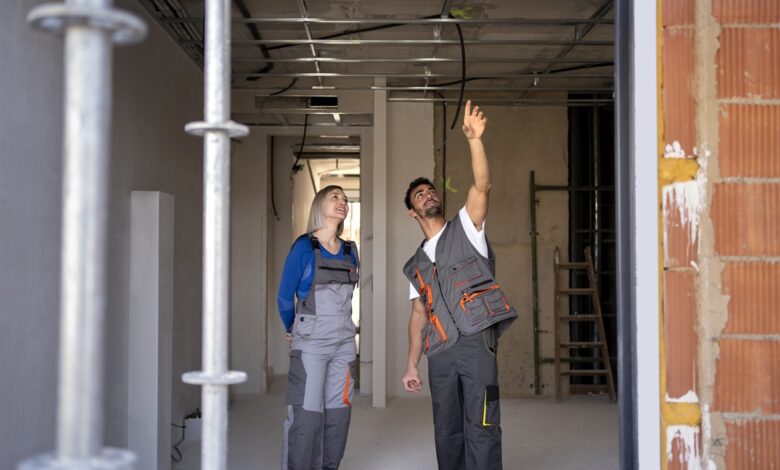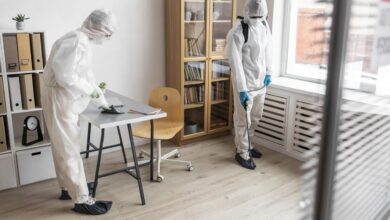The Home Inspector’s Guide to Keeping Your Home Safe

Introduction
As a homeowner, ensuring the safety and well-being of your family is of utmost importance. Your home should be a sanctuary, a place where you can feel secure and protected from potential hazards. However, overlooking certain aspects of home maintenance and safety can put you and your loved ones at risk. This comprehensive guide, from the perspective of an experienced home inspector in Virginia, aims to provide you with valuable insights and practical tips, empowering you to proactively address potential safety concerns and maintain a safe living environment.
Electrical Safety
Identifying Electrical Hazards
One of the most significant risks in any household is electrical hazards, something a home inspector always checks carefully. Faulty wiring, outdated electrical systems, and overloaded circuits can lead to fires, electrocution, and other dangerous situations. As a homeowner, it’s crucial to be vigilant and identify potential electrical hazards. Look for signs such as flickering lights, warm outlets, frequent circuit breaker trips, or a burning smell emanating from electrical sources. If you notice any of these indicators, it’s recommended to seek professional assistance from a licensed electrician, as a inspector would advise.
Electrical System Maintenance
Regular maintenance of your electrical system is essential for ensuring safety, and home inspectors will evaluate this closely. Have a qualified electrician inspect your home’s electrical panel, outlets, switches, and wiring every few years. They can identify any worn or outdated components and recommend necessary upgrades or replacements, just as a home inspector would. Additionally, consider installing ground fault circuit interrupters (GFCIs) in areas prone to moisture, such as bathrooms, kitchens, and laundry rooms, to reduce the risk of electrocution – a common recommendation.
Fire Safety
Smoke and Carbon Monoxide Detectors
Smoke and carbon monoxide detectors are critical lifesaving devices in any home, and a home inspector will check their presence and functionality. Ensure that you have properly functioning detectors installed on every level of your home, inside and outside of sleeping areas, as any inspector would recommend. Test them regularly and replace the batteries at least twice a year. Consider investing in interconnected smoke detectors, which will sound an alarm throughout the entire home if one detector is triggered.
Fire Extinguishers
Having readily accessible fire extinguishers in strategic locations throughout your home can be invaluable in the event of a small, contained fire, and inspectors will typically note their presence or absence. Make sure to purchase the appropriate type of extinguisher for your home’s specific needs, and familiarize yourself and your family members with their proper use, as a inspector would advise. Consider scheduling annual inspections and maintenance for your fire extinguishers to ensure they are in proper working condition, per inspector recommendations.
Escape Plan
Developing and practicing a fire escape plan is crucial for ensuring the safety of your family in case of an emergency, and inspectors often emphasize this. Identify at least two escape routes from every room in your home, and establish a safe meeting place outside, as a inspector would suggest. Conduct regular fire drills with your family members, teaching them how to safely exit the home and where to gather once they’re out, following home inspector guidelines. Additionally, ensure that all windows and doors leading to potential escape routes are easily accessible and unobstructed, as a inspector would check.
Fall Prevention
Stairways and Railings
Stairways and railings are common areas where falls can occur, potentially leading to serious injuries, so inspectors pay close attention to these. Ensure that all stairways are well-lit and free of clutter or tripping hazards, as a home inspector would recommend. Inspect railings for stability and secure any loose sections. Consider installing handrails on both sides of staircases for added safety, especially for elderly or mobility-impaired individuals.
Non-Slip Surfaces
Slippery floors pose a significant risk for falls, particularly in areas like bathrooms, kitchens, and entryways, something inspectors are trained to identify. Install non-slip surfaces, such as textured tiles or mats, in these high-risk areas, following home inspector advice. Additionally, consider using non-slip treads on staircases and ensuring that all floor surfaces are properly maintained and free of cracks or uneven surfaces.
Radon Testing
Radon is a naturally occurring, radioactive gas that can seep into homes through cracks in the foundation or other openings, and home inspectors will often test for this. Prolonged exposure to high levels of radon can increase the risk of lung cancer. It is recommended to have your home tested for radon every few years by a certified professional, as a home inspector would advise. If elevated levels are detected, consider implementing radon mitigation systems to reduce the concentration of this harmful gas.
Lead-Based Paint
Homes built before 1978 may contain lead-based paint, which can pose a significant health risk, particularly for children – a hazard that home inspectors are trained to identify. If you suspect the presence of lead-based paint in your home, have it professionally tested and follow proper procedures for safe removal or encapsulation, as a home inspector would recommend. Ensure that any renovation or repair work is conducted by certified lead-safe contractors to minimize exposure
Mold and Moisture Control
Excessive moisture and mold growth can lead to respiratory issues and other health problems, something that home inspectors routinely check for. Regularly inspect your home for signs of water intrusion, such as leaks, condensation, or musty odors. Address any moisture issues promptly by repairing leaks, improving ventilation, and using dehumidifiers if necessary. If you suspect a significant mold problem, seek professional assistance for proper remediation.
Secure Doors and Windows
Ensuring the security of your home’s entry points is crucial for deterring burglars and unwanted intruders, and home inspectors will evaluate this aspect of safety. Inspect all doors and windows for proper functionality and install sturdy locks or reinforcements as needed, per home inspector recommendations. Consider installing a security system or motion-sensing exterior lights to further enhance the security of your property.
Landscape and Lighting
Strategically designed landscaping and outdoor lighting can play a significant role in home security, which home inspectors understand well. Trim shrubs and trees around windows and doors to eliminate potential hiding spots for intruders, as a home inspector would advise. Install adequate exterior lighting to illuminate entryways, walkways, and other vulnerable areas, deterring potential criminal activity.
Conclusion
Maintaining a safe living environment requires a proactive approach and a comprehensive understanding of potential hazards, which is why it’s essential to have a professional home inspector evaluate your property periodically. By following the guidelines outlined in this guide. you can take practical steps to address electrical, fire, fall, environmental, and security risks within your home. Remember, regular inspections, maintenance, and vigilance are key to ensuring the safety and well-being of you and your loved ones. Don’t hesitate to seek professional assistance from home inspectors and other experts when necessary, as investing in your home’s safety is an invaluable investment in your family’s peace of mind.



